 92 citations,
January 1998 in “Dermatology”
92 citations,
January 1998 in “Dermatology” Ketoconazole shampoo improves hair growth and reduces oil similarly to minoxidil in male pattern hair loss.
[object Object]  20 citations,
January 1990 in “Journal of dermatological treatment”
20 citations,
January 1990 in “Journal of dermatological treatment” Ketoconazole shampoo treats dandruff and reduces hair greasiness.
 11 citations,
December 2019 in “Dermatologic Therapy”
11 citations,
December 2019 in “Dermatologic Therapy” Ketoconazole may help regrow hair and increase follicle size, but more research needed.
 2 citations,
March 2019 in “European Journal of Dermatology”
2 citations,
March 2019 in “European Journal of Dermatology” Pharmacy-sold shampoos tend to have fewer allergens compared to those sold in other stores.
 1 citations,
November 2019 in “International Journal of Women's Dermatology”
1 citations,
November 2019 in “International Journal of Women's Dermatology” Ketoconazole shampoo can cause rare pink hair discoloration.
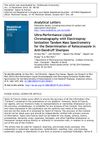 1 citations,
February 2014 in “Analytical Letters”
1 citations,
February 2014 in “Analytical Letters” The method accurately measures the amount of ketoconazole in anti-dandruff shampoo and cream, and can also be used to monitor the drug in human plasma.
 May 2024 in “Microbial Biosystems Journal”
May 2024 in “Microbial Biosystems Journal” Herbal shampoos are as effective and safer than synthetic antifungal shampoos for treating Seborrheic dermatitis.
 May 2024 in “Indian journal of pharmacy and pharmacology”
May 2024 in “Indian journal of pharmacy and pharmacology” Luliconazole is more effective than ketoconazole at repairing damaged hair cuticles.
 67 citations,
April 2007 in “Journal der Deutschen Dermatologischen Gesellschaft”
67 citations,
April 2007 in “Journal der Deutschen Dermatologischen Gesellschaft” Shampoos are designed to clean and improve hair and scalp health, with specific ingredients for different hair types and conditions.
 38 citations,
September 2006 in “Journal of Dermatological Science”
38 citations,
September 2006 in “Journal of Dermatological Science” Ketoconazole lotion can improve hair regrowth for some people with androgenetic alopecia.
 66 citations,
January 2000 in “Dermatology”
66 citations,
January 2000 in “Dermatology” Dandruff is a common, winter-worsened scalp condition linked to inflammation and microorganisms, treatable with products like ketoconazole, and may affect hair loss.
 28 citations,
December 2003 in “Medical Hypotheses”
28 citations,
December 2003 in “Medical Hypotheses” Ketoconazole shampoo with finasteride improves hair density in men with hair loss.
 1 citations,
November 2023 in “Journal of cosmetic dermatology”
1 citations,
November 2023 in “Journal of cosmetic dermatology” The new anti-dandruff shampoo with ketoconazole-coated zinc oxide nanoparticles is more effective against dandruff.
 1 citations,
December 2021 in “International journal of research in dermatology”
1 citations,
December 2021 in “International journal of research in dermatology” Dermatologists should learn more about shampoos to better treat hair and scalp issues.
[object Object]  April 2024 in “International Research Journal Of Modernization In Engineering Technology And Science”
April 2024 in “International Research Journal Of Modernization In Engineering Technology And Science” Herbal shampoos are effective, non-toxic alternatives for treating dandruff and hair fall.

Coconut oil and turmeric were almost as good as 2% ketoconazole shampoo for treating dandruff.
 128 citations,
January 2001 in “American Journal of Clinical Dermatology”
128 citations,
January 2001 in “American Journal of Clinical Dermatology” Coal tar shampoos, salicylic acid, and topical corticosteroids are effective for scalp psoriasis, with Vitamin D3 analogues also showing benefits; severe cases may require stronger medication with more risks.
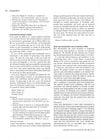 15 citations,
March 1997 in “International Journal of Dermatology”
15 citations,
March 1997 in “International Journal of Dermatology” Selenium sulfide in anti-dandruff shampoos can turn hair green.
 12 citations,
February 2014 in “Recent Patents on Inflammation & Allergy Drug Discovery”
12 citations,
February 2014 in “Recent Patents on Inflammation & Allergy Drug Discovery” Shampoos have evolved into multifunctional products with patented innovations for different hair needs and can include medicinal herbs for hair and scalp health.
 January 2023 in “International Journal of Research Publication and Reviews”
January 2023 in “International Journal of Research Publication and Reviews” Some herbal ingredients like linalool and tea tree oil have anti-dandruff properties and are safe for use in shampoos.
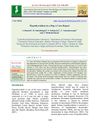 2 citations,
December 2018 in “International journal of current microbiology and applied sciences”
2 citations,
December 2018 in “International journal of current microbiology and applied sciences” The dog recovered from hypothyroidism and regrew its hair after two months of treatment.
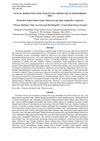 January 2024 in “Jurnal Ilmu Kesehatan Hewan”
January 2024 in “Jurnal Ilmu Kesehatan Hewan” A mixed breed dog with skin issues improved significantly after treatment and needs to avoid dampness and certain bath products to prevent it from coming back.
 July 2018 in “Elsevier eBooks”
July 2018 in “Elsevier eBooks” Up to half of people experience itchy scalp, often due to skin conditions like seborrheic dermatitis or psoriasis, and treatments vary based on the specific cause.
 61 citations,
October 2005 in “The journal of investigative dermatology. Symposium proceedings/The Journal of investigative dermatology symposium proceedings”
61 citations,
October 2005 in “The journal of investigative dermatology. Symposium proceedings/The Journal of investigative dermatology symposium proceedings” The document concludes that accurate diagnosis is crucial for effectively treating common scalp disorders, which often have similar symptoms.
 33 citations,
February 1996 in “Journal of The American Academy of Dermatology”
33 citations,
February 1996 in “Journal of The American Academy of Dermatology” Treat scalp and beard fungal infections early with oral antifungal medication and sometimes topical therapy, avoiding unnecessary allergy tests and surgery.
 15 citations,
March 2015 in “Australasian Journal of Dermatology”
15 citations,
March 2015 in “Australasian Journal of Dermatology” Seborrhoeic dermatitis may cause a condition called "seborrhoeic folliculitis," leading to chronic scalp inflammation and scarring hair loss.
 11 citations,
December 2014 in “Clinical Obstetrics and Gynecology”
11 citations,
December 2014 in “Clinical Obstetrics and Gynecology” Obstetrician/gynecologists can diagnose and manage female hair loss with careful history taking and examination.
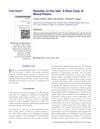 10 citations,
January 2013 in “International journal of trichology”
10 citations,
January 2013 in “International journal of trichology” A woman's scalp nodules were successfully treated with antifungal and anti-lice medications, revealing a rare case of mixed piedra infection.
 July 2024 in “Forum Dermatologicum”
July 2024 in “Forum Dermatologicum” Topical treatments for hair loss can be effective but need careful safety evaluation.
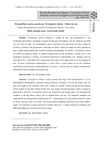 January 2021 in “Revista brasileira de higiene e sanidade animal”
January 2021 in “Revista brasileira de higiene e sanidade animal” A dog with skin lesions was successfully treated for a human-type fungal infection.






























